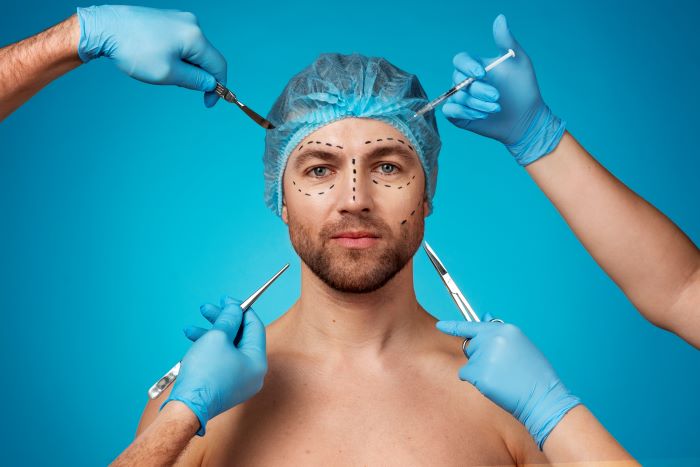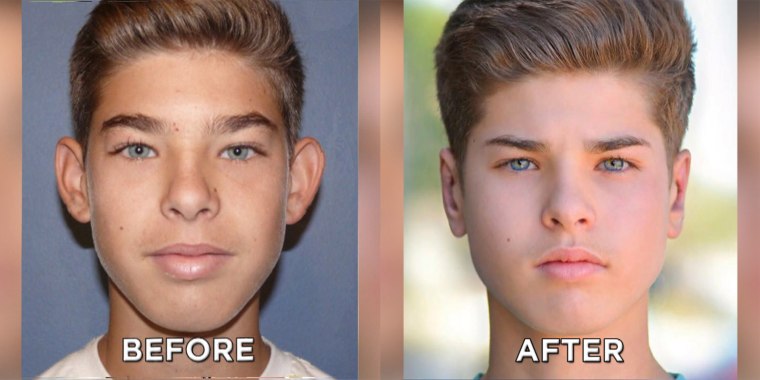Professional Plastic Surgery Rancho Cucamonga: Change Your Appearance with Leading Surgeons
Professional Plastic Surgery Rancho Cucamonga: Change Your Appearance with Leading Surgeons
Blog Article
Investigating the Emotional and Social Aspects That Drive Individuals to Think About Plastic Surgery as a way of Renovation
The decision to seek plastic surgery typically extends past mere appearances, intertwining with social and psychological characteristics that merit thorough exam. Factors such as self-confidence, prevalent societal appeal requirements, and the pervasive impact of social networks converge to form individual motivations for medical enhancement. As these impacts end up being progressively noticeable, recognizing the underlying cultural and psychological contexts is crucial. What remains to be discovered is the extensive influence these aspects have not just on individual identification but also on wider social standards and worths bordering charm and acceptance.
The Role of Self-worth
Self-confidence considerably influences an individual's choice to go after plastic surgery. Individuals with low self-esteem frequently perceive themselves in an adverse light, bring about sensations of insufficiency concerning their physical look. This adverse self-perception can drive them to look for medical treatments as a technique of improving their self-image. The desire for enhancement in one's look is frequently connected to an idea that such modifications will certainly boost their general self-worth and confidence.

Eventually, the function of self-esteem in the decision-making process pertaining to cosmetic surgical procedure highlights the intricate interaction in between body picture, personal contentment, and mental wellness. Comprehending this connection is crucial for health care specialists to guarantee that people are making notified decisions rooted in practical expectations and psychological wellness.
Social Charm Criteria
Influenced by pervasive media portrayals and social stories, societal charm standards play a crucial role fit people' assumptions of their own bodies. These requirements are usually defined by an idyllic kind of appeal that stresses attributes such as proportion, slimness, and youthfulness. As these ideals are continued with different channels, consisting of advertising and marketing, television, and film, individuals regularly internalize these messages, leading to frustration with their natural look.
The ramifications of these societal norms extend past aesthetic preferences; they can affect self-confidence, mental health, and social relationships. People that regard themselves as dropping short of these standards may experience feelings of inadequacy, triggering a desire for plastic surgery as a method of accomplishing societal authorization. This search is usually fueled by the idea that adapting these suitables will boost not only physical look but additionally social standing and individual satisfaction.

Influence of Social Media Site
The influence of social beauty standards is further intensified by the rise of social media sites platforms, where curated photos and idealized representations of beauty are ubiquitous. Individuals are continuously exposed to filtered and edited pictures, which often show unattainable physical features. This direct exposure cultivates a culture of comparison, leading people to analyze their very own appearance versus these frequently impractical standards.
Social media influencers and stars frequently promote cosmetic treatments, stabilizing the idea that surgical improvements are a feasible ways for accomplishing social perfects (plastic surgery rancho cucamonga). The exposure of these improvements can create an understanding that going through cosmetic surgical treatment is a common practice, thus affecting people to think about similar interventions as a path to improved self-confidence and social acceptance
In addition, the interactive nature of social media enables for instant feedback via likes and remarks, additionally strengthening the need to adjust to popular appeal requirements. Such communications can exacerbate feelings of insufficiency and drive individuals toward cosmetic surgery as a means of obtaining validation. Eventually, social media sites plays a crucial role in forming understandings of elegance, which considerably impacts the decision-making processes bordering cosmetic surgical procedure.

Cultural Perspectives on Appearance
Throughout numerous societies, perceptions of appearance are deeply rooted in historic, social, and financial contexts, forming people' views on elegance and desirability. In several societies, appearance offers as a substantial pen of identity, influencing social standing, expert possibilities, and personal partnerships. As an example, in some societies, see this site light skin is frequently associated with like it wealth and opportunity, while others may glorify darker complexion as icons of toughness and credibility.
Moreover, conventional appeal standards are often bolstered through cultural narratives, media depictions, and family affects, leading to varying suitables throughout various regions (plastic surgery rancho cucamonga). In Western societies, the focus on young people and fitness often drives individuals towards cosmetic improvement, while in specific Eastern cultures, even more refined changes lined up with conventional aesthetic appeals might be liked
Globalization and the expansion of digital media have further made complex these dynamics, creating a hybridization of appeal ideals that transcends geographical boundaries. As individuals increasingly navigate these social stories, the stress to satisfy particular appearance requirements can cause the need for plastic surgery, reflecting a complex interplay of individual desires and social worths. Understanding these social point of views is essential in addressing the inspirations behind plastic surgery considerations.
Mental Impacts of Plastic Surgery
Lots of individuals seeking plastic surgery record experiencing profound emotional impacts that can dramatically change their self-perception and psychological health - plastic surgery rancho cucamonga. The wish for physical enhancement frequently stems from underlying concerns such as low self-esteem, body dysmorphic problem, or social stress regarding elegance standards. For some, the immediate post-operative phase can lead to a short-lived boost in self-esteem and complete satisfaction with their look, fostering a sense of empowerment
Nonetheless, these favorable sensations may not be enduring. Research study indicates that while some individuals experience boosted self-worth, others may encounter heightened anxiety or anxiety if their expectations are not fulfilled. This disparity can occur from impractical ideals perpetuated by media depiction and cultural narratives surrounding elegance.
Furthermore, the mental implications of plastic surgery expand beyond the individual. Relationships with household and good friends may be strained as social dynamics shift, resulting in feelings of isolation or alienation. Inevitably, the emotional impacts of plastic surgery are complex and complicated, needing careful consideration by both possible clients and doctor to make certain informed decision-making and reasonable expectations.
Conclusion
To conclude, the choice to seek plastic surgery is dramatically affected by a combination of self-confidence issues, social appeal standards, and social point of views on appearance. The prevalent reach of social media better exacerbates these pressures, advertising unrealistic perfects that individuals usually strive to achieve. Understanding these social and psychological variables is vital for right here resolving the inspirations behind cosmetic surgery, highlighting the demand for a much more nuanced discussion bordering charm and self-acceptance in modern society.
The decision to seek cosmetic surgical treatment frequently prolongs past simple visual appeals, linking with social and emotional dynamics that warrant thorough assessment. Inevitably, social media plays an essential function in forming assumptions of elegance, which considerably affects the decision-making procedures bordering cosmetic surgical procedure.
As individuals significantly browse these social stories, the pressure to adapt to particular look criteria can lead to the need for cosmetic surgical treatment, mirroring a complicated interaction of personal ambitions and social worths.In final thought, the decision to go after cosmetic surgery is significantly influenced by a mix of self-confidence problems, social appeal standards, and social perspectives on appearance. Recognizing these social and emotional factors is vital for resolving the inspirations behind cosmetic surgical procedure, highlighting the need for an extra nuanced discussion bordering appeal and self-acceptance in contemporary culture.
Report this page